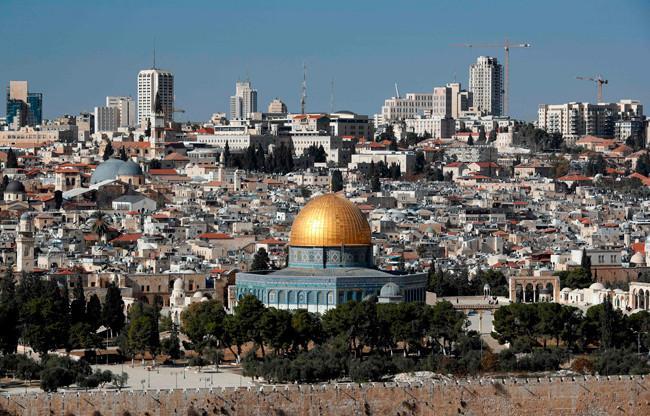
U.S. President Donald Trump is close to a decision on whether to recognize Jerusalem as Israel's capital, his son-in-law and Middle East peace envoy Jared Kushner said on Dec. 3.
Palestinian leaders are lobbying desperately against such a move, which the Arab League chief Ahmed Abul Gheit said would boost fanaticism and violence while sinking hopes for peace.
But Kushner, the 36-year-old head of a small and tight-knit White House negotiating team, made a rare public appearance to put an optimistic face on his efforts.
"The president's going to make his decision," Kushner told the Saban Forum, choosing not to deny reports Trump will declare Jerusalem Israel's capital on Dec. 6.
"He's still looking at a lot of different facts and when he makes his decision he'll be the one who wants to tell you. So he'll make sure he does that at the right time."
On Dec. 4, Trump must decide whether to sign a legal waiver that would delay plans to move the U.S. embassy from Tel Aviv to Jerusalem for another six months.
Every U.S. president has done this since 1995, judging the time not ripe for such a move, and Trump is expected to begrudgingly do so for a second time this week.
But, according to diplomats and observers, he is also now expected to announce in a speech on Dec. 6 that he supports Israel's claim on Jerusalem as its capital.
Arab League leader Abul Gheit meanwhile said his organization was closely following the issue and is in contact with the Palestinian authorities and Arab states to coordinate the Arab position if Trump takes the step.
"It is unfortunate that some are insisting on carrying out this step without any regard to the dangers it carries to the stability of the Middle East and the whole world," he told reporters in Cairo on Dec. 3.
"Nothing justifies this act... it will not serve peace or stability, instead it will nourish fanaticism and violence," said Abul Gheit.
The Palestinian president on Dec. 3 warned that American recognition of Jerusalem as Israel's capital would jeopardize the White House's nascent Mideast peace efforts.
"Any American step related to the recognition of Jerusalem as capital of Israel, or moving the U.S. Embassy to Jerusalem, represents a threat to the future of the peace process and is unacceptable for the Palestinians, Arabs and internationally," Mahmoud Abbas told a group of visiting Arab lawmakers from Israel, according to the official Wafa news agency.
Israel regards Jerusalem as its capital, with most government functions, including the prime minister's office, Supreme Court and parliament, located in the holy city.
But the international community says the city's status should be determined through peace talks. The Palestinians claim east Jerusalem, captured by Israel in 1967, as their capital.
Abbas' spokesman, Nabil Abu Rdeneh, said late on Dec. 2 that the president has been in touch with Arab and world leaders to rally opposition against any American move on Jerusalem.
He said Abbas had been in touch with leaders of Egypt, Jordan, Saudi Arabia, Qatar, Kuwait and France.
"We believe that such an American step, if it takes place, will enter the region in a new course, and a dangerous phase whose results cannot be controlled," he said.
Abbas spoke to Hamas leader Ismail Haniya late on Dec. 3, a Hamas statement said, with the two sides agreeing their opposition to any shift in U.S. policy.
The rare call between the two comes as attempts at implementing a reconciliation deal have faltered in recent days.
But Kushner, addressing a sympathetic audience at an annual meeting of Israeli and U.S. policy-makers hosted by businessman Haim Saban, sees grounds for optimism.
The real estate developer turned presidential adviser is working closely with Israeli officials and has developed ties with the young Saudi and Emirati monarchs. He sees an opportunity for peace if the Sunni Arab countries of the region align themselves with Israel in opposition to the threat of Iran.
Israel's Prime Minister Benjamin Netanyahu shares this hope, although he dares hope an accommodation with Arab countries could precede any Palestinian deal.
Kushner, in common with U.S. official thinking under previous administrations, sees a Israeli-Palestinian settlement as coming before any great re-alignment.
"You've got to focus on solving the big issue," he told a friendly but frankly skeptical Saban, and an audience of dignitaries and policy experts.
"The regional dynamic plays a big role in what we think the opportunities are because... a lot of these countries look and say they all want the same thing.
"And they look at the regional threats and I think that they see Israel, who is traditionally their foe, is a much more natural ally to them than it was 20 years ago," Kushner added.
"You've a lot of people who want to put this together, but you have to overcome this issue of the Israeli-Palestinian conflict in order for that to happen."